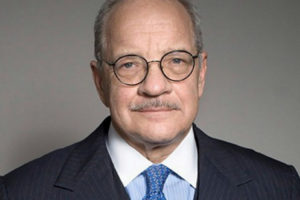[Published at Living Life Fearless] Danny Boyle and Ben Stiller did it in the 1990s with Trainspotting and Reality Bites, reflecting the UK counter-cultural movement and Generation X extension of the Baby Boomer counter-culture movement, respectively; and Richard Linklater did it with Dazed and Confused, portraying the rebellious American youth of the 1970s through bright-eyed high school characters. This era encapsulates that aforementioned hangover of the 1960s American counter-cultural hippie and anti-establishment movement.
Linklater’s follow-up Before Trilogy further explores the Generation X demographic and the paralleling themes of rebellion, blind introversion, and simultaneous existential anxiety and boredom, through the concept of dating and relationships, as it navigates the onset of the dot com and social media eras and the subsequent, further self-seeking generations.
Before Sunrise

Before Sunrise consists of a considerable amount of walking and talking – activities we, as a society, have significantly limited over the past 30 years. Before Uber, trains and taxis were used as public transit. Eye contact. No small talk. Long, intellectual conversations beneath the surface (although most of us aren’t nearly as witty as Jesse and Celine). Picnics. In this film, analog is paramount over digital, before the latter consumed our lives and placed a buffer in front of us. Jesse (Ethan Hawke) and Celine (Julie Delpy) promise to write letters to each other, to meet in person instead of keeping in touch via email, phone, pager, or fax. They even listen to music of a prior era throughout the film. This harkens back to a time when people preferred face-to-face communication. Even the phone scene during their dinner date playfully mocks the relative absurdity of the modern conversational phone call. Physical relics of the past are important motifs. Records. Ferris wheels. Beautifully archaic European architecture. Young, naive love contributes to a magical element to Before Sunrise.
The far-reaching, philosophical ideas reflective of a counter-culture of generations past exuding from Generation X pour from the mouths of our two protagonists. Some aspirations that never quite come to fruition. Some aspirations that do. These ideas fade over time as our characters age, and the next industrial revolution with the onset of the internet, the 2000s tech boom, and the subsequent Great Recession.
If Before Sunset and Before Midnight are the middle and end chapters of this trilogy, Before Sunrise marks the beginning of a postmodern relationship. One that weathers the test of the dot com bubble, the intrusive toxicity of social media, and the compounding impact of the notion that society revolves around the individual.
Before Sunset

In Before Sunset, almost a decade older, Jesse and Celine are slightly less naive; reality faintly hovers over the fantastical tone of Before Sunset. Generation X is growing up and finally beginning to conform to the modes of society in our current ideology. They’ve managed to infuse some of their ideas into their work, but, alas, we must sacrifice passion for paychecks in order to survive. Shorter walks and talks reflect a faster-paced society with the onset of the internet. Resentment. Forgiveness. Reflection of their naïveté, and, contrarily to Before Sunrise, the newly realized absurdity of letters over modern technology as digital begins to monopolize communication. However, Celine still holds on to the analog of the past. Old music is heard throughout the film again. A particularly impactful scene over a Nina Simone playing on vinyl is one of the most memorable in cinema history.
Celine still lives a somewhat Bohemian lifestyle, whereas Jesse’s career as an author has taken off, providing him both means and vices. Both of them remain extremely inward focused. Selfish. Entitled. Increasingly stereotypical qualities of the Generations X, Y and Z, modeled after the poster children of egomaniacs: Baby Boomers. Paris, Celine’s home, takes us to the birthplace of many of the ideas that Jesse and Celine express in Before Sunrise – those of the Lost Generation of the 1920s, many of which became expatriates in Paris.
Before Midnight

In Before Midnight, yet again, nearly a decade later, as Jesse and Celine’s relationship has lost most of its luster, they’ve now fully embraced the social media generation. Driving and arguing replaces walking and talking, for the most part; public transit appears almost obsolete with Uber among the bourgeoisie, a class Jesse and Celine would’ve been horrified to become even a decade prior. They bicker about their own inwardness and how it affects each other and their family. They have children now, helping to usher them into the new era socializing online. Celine has done a complete 180 degree from her Bohemian lifestyle in Before Sunset, evolving into a person seemingly in love with her work more than her relationship, something Jesse has always seemed to do. Infidelity. Untruths. The realization that Generation X didn’t know anything more than the generations before it, and that the following generations represented in their children are an extension of that notion; we’re all simply navigating the current, oppressive American ideology that rewards individuality over community.
Finally, analog has disappeared. Everything is digital. Cell phones. Computers. Streamlined communication. There is noticeably less eye contact as Jesse and Celine’s tense conversations crescendo and decrescendo. They’re not as present as they were in the prior two films of the trilogy. They’ve grown distracted by the pressures of society and eventualities of life. Newer music of the youth has infiltrated the nostalgic music of Jesse and Celine’s past. Before Midnight represents pessimistic reality versus the optimistic hopefulness and fantasy of the Before Sunset. For the first time in the films, the audience welcomes other characters, all of who represent the collective hope of community in a society that increasingly discourages it and the idea of flexible family, free of the shackles of the nuclear family structure.
Romance, dating, relationships, lust, love, attraction, friendship, family, and professional acquaintances are affected by communication, which is nearly singularly influenced by technology, which is, in turn, dictated by the current, fading American ideology of toxic capitalism, rooted in imperialist sensibilities. Generation X, Y, and Z are merely caught in the crosshairs of this long-anticipated, impending interregnum. If there is ever a fourth Before film, it would be nice to see Jesse and Celine journey back to their roots, youthful ideals, and former, enthusiastic ambitions of both character and action.








Leave a Reply
Your email is safe with us.